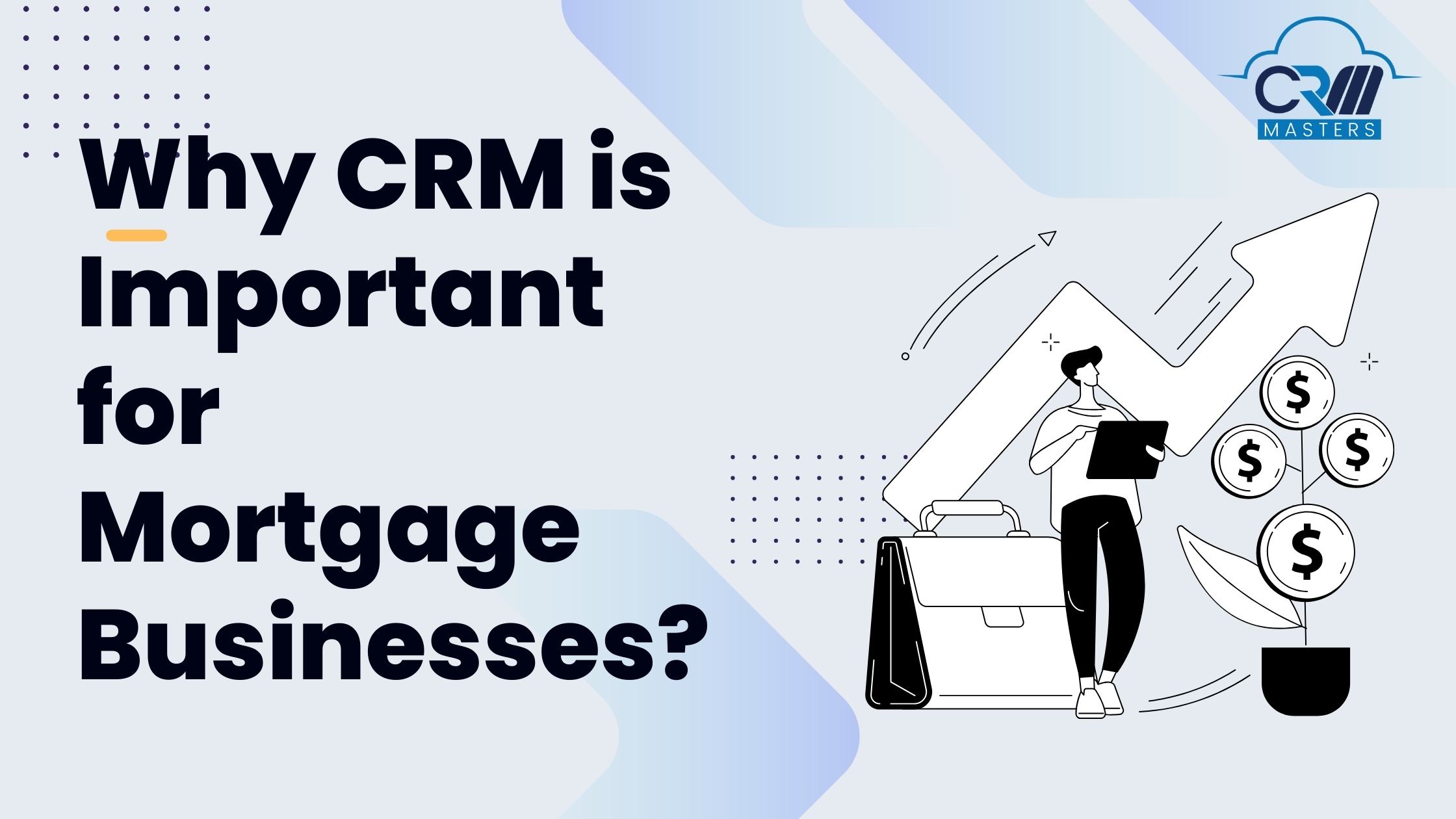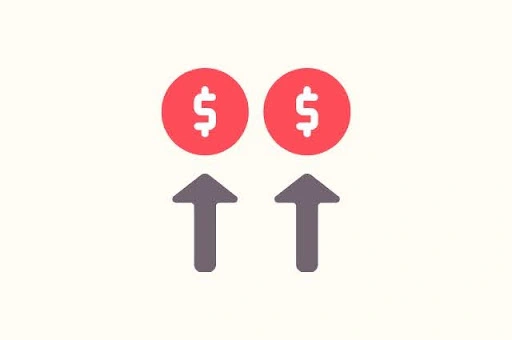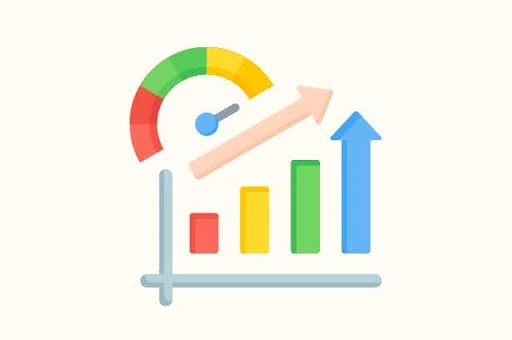
How Mortgage CRM Software Helps Brokers & Lenders Attract More Clients?
The mortgage industry is highly competitive, with many businesses competing to attract and retain clients. As customer expectations rise and processes become more digital, the need for efficient client management is more critical than ever. A Customer Relationship Management (CRM) system is an essential tool for mortgage businesses looking to streamline operations, improve client relationships, and ultimately, bring in more clients. With the right CRM consulting services, you can achieve all of these for your mortgage business.
In this blog, we’ll explore how mortgage CRM helps businesses by increasing productivity, automating processes, and enhancing marketing efforts.
What is Mortgage CRM Software?
A Mortgage CRM is a specialized software solution designed for professionals in the mortgage industry, including brokers and lenders, to efficiently manage client relationships and simplify the entire loan process. It centralizes borrower information, tracks the progress of loans from lead to closing, and automates repetitive tasks to save time and reduce errors.
By integrating seamlessly with other industry systems, a Mortgage CRM enhances operational efficiency, improves the customer experience, and boosts deal closure rates, helping your team work smarter and close more loans successfully.
Benefits of Using Mortgage CRM
1. Maximize Upsell and Cross-Sell Opportunities

A CRM allows mortgage businesses to easily identify opportunities for upselling and cross-selling additional products or services to existing clients.
- Upsell/Cross-sell: Based on the detailed information stored in the CRM about each client’s needs and preferences, mortgage companies can offer relevant products like refinancing options or insurance.
- Client Segmentation: CRM tools allow businesses to segment clients based on various factors, helping them create targeted upsell campaigns.
Also Read: Top 7 CRM Software Tools
2. Streamline Loan Applications with a Digital Portal

A secure, digital mortgage portal powered by a CRM allows borrowers to manage their loan applications from a single, safe location.
- Secure Digital Portal: Borrowers can complete their mortgage applications, upload documents, sign disclosures electronically, and monitor the status of their loans in one convenient place.
- End-to-End Loan Management: From application submission to loan approval, CRM keeps all aspects of the mortgage process organized and accessible for both clients and loan officers.
3. Integrating Systems for Better Efficiency
One of the most significant advantages of using a CRM system in the mortgage industry is its ability to integrate various systems into one unified platform.
- System Integration: CRM seamlessly integrates with systems like productivity tools, and other software to streamline the loan application and approval process.
- Credit Scoring Integration: CRM can pull credit scores and other relevant financial data directly into the platform, reducing the need for manual data entry and speeding up loan approvals.
- Internal Tool Integration: Whether it’s proprietary software or third-party applications, CRM ensures that all tools work together to provide a smooth, end-to-end experience.
4. Improve Field Workforce Productivity
For mortgage companies with field agents, CRM systems help plan and manage daily activities, improving productivity and efficiency.
- Daily Activity Planning: CRM tools automatically organize an agent’s day, prioritizing meetings and tasks based on proximity, importance, and client needs.
- Mobile CRM Access: Field agents can access CRM features on the go, ensuring they always have the most up-to-date information when meeting clients or partners.
- Route Optimization: CRM systems help agents plan the most efficient routes for their appointments, reducing travel time and increasing productivity.
5. Boost Sales Productivity Through Automation

Sales productivity is essential for mortgage businesses to grow their client base. CRM tools offer features that automate and streamline sales tasks, freeing up time for loan officers to focus on client interaction.
- Task Manager: CRM platforms come with task management tools that ensure critical activities, such as document collection and credit score checks, are scheduled and completed on time.
- Sales Automation Designer: Loan officers can automate repetitive tasks like follow-up emails and loan status updates, creating customized workflows that ensure every lead is nurtured efficiently.
- Guided Actions: These pre-defined actions within the CRM help loan officers stay on track, delivering timely follow-ups and making sure all steps in the loan process are completed.
6. Enhance Lead Management and Lead Scoring
One of the biggest challenges for mortgage companies is managing and distributing leads efficiently. CRM platforms provide tools that ensure leads are handled promptly and appropriately.
- Lead Distribution: CRM systems automatically distribute leads to the most suitable agents based on criteria like location, language, availability, and agent performance.
- Lead Scoring: This feature prioritizes leads based on their likelihood to convert, allowing agents to focus their attention on high-potential prospects.
7. Automation to Increase Efficiency

Automation is a game-changer in the mortgage industry, helping businesses save time while maintaining a high level of service.
- Automated Email Drips: Automated email campaigns can nurture leads over time, ensuring potential clients stay engaged. Emails can be personalized based on the client’s progress in the mortgage process.
- Automated Updates: CRM platforms automatically notify clients and partners about loan application progress, ensuring that everyone involved is always informed.
- Sales Automation Designer: This tool helps loan officers create and manage automated workflows for follow-ups, document requests, and client communication.
8. Power Up Marketing Campaigns with CRM Insights
A strong marketing strategy is crucial for attracting new clients. CRM tools offer valuable insights and automation to help mortgage businesses run more targeted and effective campaigns.
- Marketing Visibility: CRM provides detailed analytics that shows which marketing campaigns are generating the most leads, enabling businesses to adjust their strategies accordingly.
- Email and Website Tracking: With CRM, mortgage businesses can track client interactions with emails and websites, helping them understand which marketing efforts are most effective.
- Landing Page Designer: Mortgage companies can use CRM to create high-converting landing pages that capture lead information, ensuring potential clients are directed into the sales funnel.
- Lead Scoring: By assigning scores to leads based on their engagement, CRM helps businesses focus on leads with the highest conversion potential.
Also Read: Why Should Businesses Switch from Excel to CRM?
Who Can Benefit from Mortgage CRM Software?
Mortgage CRM software is essential for organizations that handle numerous client interactions, referrals, and loan processes. It streamlines workflows, improves communication, and helps teams stay organized and compliant. Here’s how different roles can leverage a Mortgage CRM:
1. Mortgage Brokers and Loan Officers:
Easily manage borrower applications, track each stage of the loan process—from pre-approval to closing—send disclosures, and collect required documents without missing a step.
2. Sales and Marketing Teams:
Capture and organize leads from websites, events, or partner networks. Segment your audience effectively and run targeted campaigns tailored to loan types, borrower status, or other criteria.
3. Operations and Compliance Managers:
Keep tabs on application progress, manage document workflows, and ensure all compliance requirements are met. Quickly identify gaps and maintain audit-ready records.
4. Partner Managers and Referral Coordinators:
Efficiently handle lead flow from referral partners, log interactions, and analyze which relationships drive the highest quality business opportunities.
5. Branch Managers and Executives:
Gain insights into team performance, assess pipeline strategies, monitor conversion rates, and get a comprehensive view of overall pipeline health across teams or regions.
Who Needs a Mortgage CRM Software?
Mortgage CRM software has become essential for organizations handling a large volume of client interactions, referrals, and loan processing activities. Centralising communication, automating workflows, and tracking performance helps teams stay organized and efficient.
Here’s how different roles can leverage Mortgage CRM:
1. Mortgage Brokers and Loan Officers:-
Track loan applications, manage each stage of the pipeline—from pre-approval to closing—send disclosures seamlessly, and request necessary documents without missing a beat.
2. Sales and Marketing Team:-
Capture and organize leads from websites, events, and partner networks. Segment audiences effectively and launch targeted marketing campaigns tailored to specific loan types or statuses, maximizing engagement and conversion.
3. Operations and Compliance Managers:-
Simplify application tracking and documentation management. Identify missing compliance steps quickly, maintain accurate records, and ensure audit readiness at every stage of the lending process.
4. Partner Managers and Referral Coordinators:-
Streamline referral management by monitoring lead flow from partners. Record activities, measure which relationships generate the highest-quality deals, and strengthen strategic partnerships.
5. Branch Managers and Executives:-
Gain a clear overview of team performance. Analyze pipeline management strategies, monitor lead conversion rates, and track overall pipeline health across branches or regions to make data-driven decisions.
Why Zoho is the Best Mortgage CRM Software?
Zoho CRM offers a range of powerful features that make it ideal for mortgage professionals and with the right Zoho consulting services, you can achieve these benefits at affordable cost.
1. Streamlines Loan Tracking – Monitor every stage of the mortgage process from application to closing.
2. Automates Workflows – Reduce manual tasks and ensure nothing falls through the cracks.
3. Manages Referrals – Track leads from partners and measure referral performance.
4. Ensures Compliance – Keep documentation organized and audit-ready.
5. Real-Time Dashboards – Get instant insights into team performance and pipeline health.
6. Easy Document Management – Collect, store, and share documents seamlessly.
7. Targeted Marketing Tools – Segment leads and run campaigns based on loan type or status.
With these features, Zoho helps mortgage brokers, loan officers, and managers work smarter, convert more leads, and grow their business efficiently
Conclusion
Mortgage CRM software is no longer optional — it’s essential for brokers, lenders, and mortgage companies that want to streamline loan processing, improve client relationships, and close more deals.
At CRM Masters, we bring 9+ years of experience in Zoho CRM implementation tailored for mortgage professionals. Our team helps you customize Zoho to match your loan workflows, automate compliance, and generate more qualified leads.
Book your FREE consultation today and discover how we can transform your mortgage business with Zoho CRM.
FAQ
Q1: What is the best mortgage CRM for brokers?
The best mortgage CRM for brokers is one that streamlines loan applications, automates client communication, and ensures compliance. Popular options include Salesforce, Shape, and Zoho CRM. For brokers looking for a cost-effective and highly customizable option, Zoho CRM is often the best choice since it adapts to different loan workflows and integrates easily with third-party tools.
Q2: How does mortgage CRM help lenders close more loans?
Mortgage CRM software helps lenders close more loans by:
- Automating follow-ups and reminders so no lead is missed.
- Scoring and prioritizing leads based on conversion potential.
- Offering digital portals for faster application processing.
- Providing real-time dashboards to track loan progress and bottlenecks.
This ensures that lenders spend more time with qualified borrowers and less time on manual paperwork.
Q3: Can Zoho CRM be customized for mortgage businesses?
Yes. Zoho CRM can be fully customized for mortgage businesses. With Zoho implementation services, you can:
- Build custom loan pipelines (from application to closing).
- Automate compliance workflows.
- Integrate credit scoring, document management, and referral tracking.
- Tailor dashboards for brokers, loan officers, and branch managers.
This flexibility makes Zoho one of the best mortgage CRM options for small to mid-sized lending businesses.












